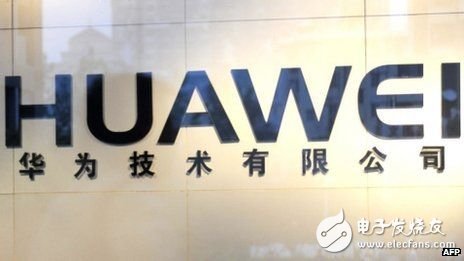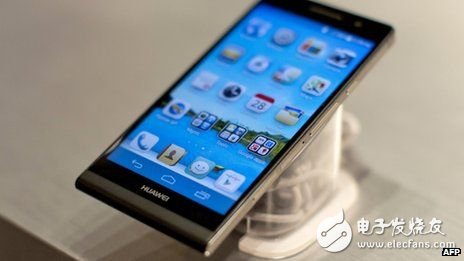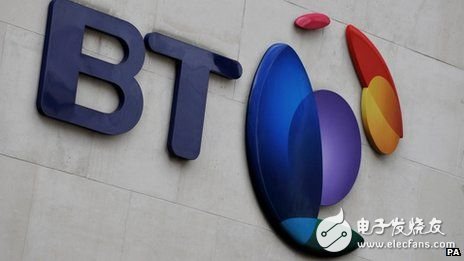The British BBC website today published an article by its global business journalist Peter Day entitled "Whether we should be afraid of the growth of China's telecom equipment company Huawei". The article said that Huawei was a mystery ten years ago, and now Huawei has Gradually entering the public's field of vision, the US security concerns have turned the Chinese company out, but in fact Huawei is to some extent a Chinese version of Apple.
The full text is as follows:
About ten years ago, I went to visit Huawei for the first time. At that time, I knew very little about who this company was and what it was doing. Ten minutes after visiting its impressive company showroom in the emerging city of Shenzhen, I became excited. It is full of complicated and expensive machines.
Huawei was designing and selling switches and networking equipment that made modern communications and the Internet possible. This is indeed a high-tech enterprise.
But what is really convincing is the customer base that this progressive Chinese company already has.
BBC Comment: Should we be afraid of Huawei's growth?

Figure: Many Western consumers are still not familiar with Huawei.
I once had a preconceived notion that Huawei is a typical developing world company that was “inspired†by Western research and development to provide cheap machines for the fast-growing domestic market.
But in fact, Huawei and a well-known American competitor Cisco have been legally involved in intellectual property disputes. Even so, a decade ago, Huawei had a strong international client base.
Of course, companies like BT don't work with a suspicious supplier?
In a world of eagerness for connectivity, telecom network companies, which were spending huge sums of money to build huge new communications technology facilities, emerged as a new competitor and broke the oligopoly of companies like Ericsson, Alcatel-Lucent and Nokia. The pattern is very welcome.
(However, Huawei’s client list does not have the name of a large US company, and it still hasn’t been. I will explain it a bit.)
"Unknown company"
Despite this, Huawei was still very mysterious ten years ago. Some of the doubts I have now understand, there are some that they have explained, but there are still some that continue, and this has caused a disadvantage to this company.
Let us think about them and tell us incessantly about the new needs of connecting the whole world and the enormous potential and terrible danger.

Figure: Huawei has turned to manufacturing consumer products.
First of all, who is Huawei? It has 150,000 employees and a global customer base. But even its top management admitted that Huawei is the least well-known of the world's largest companies.
Founded in Shenzhen in 1987, the founder Ren Zhengfei was previously a Chinese military engineer who found a unique opportunity in China's non-metropolitan areas.
The booming “first-line†cities of Shanghai and Beijing were already equipped with new telecommunications networks from leading Western equipment suppliers.
But Westerners have always been wary of most Chinese companies. Ren Zhengfei established Huawei to introduce foreign telecommunications equipment and sell it to overseas companies.
This is a thriving market. China's big cities are eager to catch up with the modern world that first-tier cities are entering.
In order to help the company grow, Ren Zhengfei adopted an original red-like approach to win the investment that Huawei needs. He asked for an increasing number of employees to provide cash, and in return they became shareholders.
The company said that employees and retired workers are now 100% "owned" by Huawei. Ren Zhengfei is one of the employee shareholders and he owns the largest share of Huawei's company - 1.4%.
I was very confused when they told me this strange employee collective ownership model ten years ago. The role of the CEO is also rotated six months, which makes people feel more puzzled.
Uncertainty in ownership seems to be one of the characteristics that Huawei has caused the US government to suspect.
Another thing that confuses me ten years ago is how many employees in Huawei are involved in R&D – they say that more than 40% of employees are involved in R&D. This sounds like an impossible ratio for a company that makes a large number of large and complex devices with complex technologies.
But when you think about it, you will realize that this is a company that adopts many Western company models that enter the Chinese market and manufacture products here. Huawei designs telecommunications equipment and then manufactures it from a large Chinese supply chain.
Huawei is to some extent a Chinese version of Apple, which is designed internally and then outsourced to the Chinese supply chain.
Turn to consumers
Only so far, all these activities have been going on behind the scenes. Huawei's customers are international giants, not consumers. It is a B2B brand.
But as it matures, the company is increasingly annoyed by the lack of brand recognition. After all, it is one of the largest companies in China.

Figure: British Telecom (BT) is a major customer of Huawei.
To solve this problem, Huawei recently launched a number of mobile terminals, including mobile phones and tablets. They are related to Huawei's core business, telecommunications. Huawei has provided new products to its corporate customers and can sell them to its retail customers.
That is to say, if it can provide the features and styles that consumers need in an overly competitive market, then smartphones and tablets may also turn Huawei's name into a consumer brand. After all, China is the world's largest smartphone market.
When I visited Huawei a few months ago, the company’s Shenzhen building made a huge display of its mobile phones and tablets. In order to emphasize its international image, Huawei recently launched the world's thinnest smartphone in London.
Therefore, this is a Chinese company that is collectively owned by employees. It invests heavily in research and development and produces high-tech equipment needed around the world. This sounds very noteworthy.
American protectionism?
There is only one deficiency in the US and it is a big one. A huge world market largely shuts Huawei out of the United States.
Americans worry that Huawei's equipment plays an important role in the global telecommunications infrastructure outside of China. In particular, Huawei's ownership is still quite opaque, or at least puzzling.
US lawmakers have issued a disturbing report emphasizing their concern that every Huawei machine has a secret back door installed so that Chinese network snoopers can obtain priceless corporate, economic or political secrets. Of course, Huawei firmly denied these allegations and insisted that all of this is US trade protectionism.
However, as we all know, Western organizations are experiencing continuous Internet hacking attacks, and the source seems to be in China. Americans believe that Huawei may be just a Chinese Internet Trojan horse.
In response to these concerns, Huawei is trying to make itself international. The company has hired a number of well-known Westerners to hold positions in key companies in an attempt to demonstrate transparency.
The UK is clearly seen as a beachhead in the Anglo-Saxon world, and Huawei has hired some very well-known British predecessors on its local board of directors.
And, in order to convince the British government that the company did not sell back-to-door switching equipment to important customers such as British Telecom (BT), Huawei set up a special center in Banbury, England, to review the company's equipment before it was sold to UK customers. Its equipment products are safe.
Of course, in the past few months, the US intelligence agency Prism (PRISM), which was unveiled by former US National Security Agency contractor Edward Snowden, has brought these security issues to a whole new level. angle. It seems now that the Americans’ opposition to cyber espionage seems a bit too much. After all, they are doing many of these things themselves.
Of course, it's clear that since people have used a lot of digital and scannable technologies, the authorities have started using all the methods they can use to monitor information, data and search for everything. What do people think about the people at Cheltenham GCHQ (British Communications Intelligence Agency) doing?
The Internet is a Faustian-style transaction, and its users should be aware of this disturbing fact very early on. Crazy magazines have said for decades that technology has brought us into a world of spies and counter-spyware that they target us.
But is this related to Huawei? Maybe only those spies know it.
Pd Fast Charger,45W Usb-C Charger,Mobile Phone Fast Charger Usb-C,Apple Phone 12 Charger
Guangdong Mingxin Power Technologies Co.,Ltd. , https://www.mxpowersupply.com